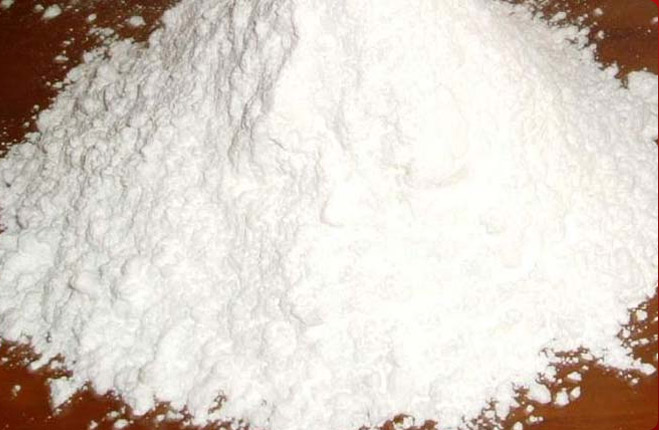Feldspar powder is widely recognized for its applications in industries like glass, ceramics, and paint, but its role in agriculture is often misunderstood. Farmers and agronomists have debated its effectiveness, leading to various myths and misconceptions. This article aims to separate fact from fiction, helping agricultural professionals make informed decisions about using feldspar powder in farming.
Myth 1: Feldspar Powder is a Fertilizer Replacement
Fact: Feldspar is a soil amendment, not a direct fertilizer.
One of the most common misconceptions is that feldspar powder can replace fertilizers. While feldspar contains potassium (K), which is essential for plant growth, it does not provide nitrogen (N) or phosphorus (P), two key macronutrients required for high-yield crops. Unlike synthetic fertilizers, feldspar releases potassium slowly, making it more of a soil conditioner than a direct nutrient source.
Agricultural studies indicate that feldspar powder enhances soil structure, improving moisture retention and aeration. When used alongside organic fertilizers, it helps optimize nutrient absorption. However, relying solely on feldspar without supplementing other necessary nutrients can lead to deficiencies that hinder plant growth.
Myth 2: Feldspar Powder is Not Environmentally Friendly
Fact: Feldspar powder is a natural mineral and poses no harm to the environment.
Some believe that feldspar powder contributes to soil degradation or pollution, but the reality is quite the opposite. Feldspar is a naturally occurring mineral and does not contain harmful chemicals. Unlike synthetic fertilizers that can lead to soil acidification or groundwater contamination, feldspar powder gradually releases potassium, making it a sustainable alternative for long-term soil health.
The slow-release nature of feldspar prevents nutrient leaching, ensuring that potassium remains available to plants for extended periods. This quality is particularly beneficial for sustainable farming practices, where maintaining soil fertility without over-reliance on chemical inputs is a priority.
Myth 3: Feldspar Powder Has No Impact on Crop Yield
Fact: Feldspar improves soil fertility and indirectly enhances crop yield.
Although feldspar is not a direct fertilizer, its contribution to soil health can lead to better crop productivity. Potassium plays a crucial role in photosynthesis, enzyme activation, and water regulation in plants. When feldspar powder is incorporated into soil management strategies, it helps plants resist diseases, withstand drought conditions, and improve fruit quality.
Research indicates that feldspar-enriched soils exhibit better microbial activity, which aids in breaking down organic matter, leading to improved nutrient availability. Farmers who integrate feldspar powder with compost and organic fertilizers often report enhanced crop growth and resilience to environmental stress.
Myth 4: All Feldspar Powder is the Same
Fact: Different types of feldspar contain varying mineral compositions.
Feldspar minerals are classified into two main categories—potassium feldspar (K-feldspar) and plagioclase feldspar. While potassium feldspar is ideal for agriculture due to its high K content, plagioclase feldspar contains more sodium and calcium, making it less effective as a potassium source.
Choosing the right type of feldspar powder for soil amendment is essential for achieving the desired results. Many agricultural suppliers provide feldspar with specific compositions tailored to enhance soil fertility without disrupting the natural nutrient balance.
Myth 5: Feldspar Powder is Only Useful in Large-Scale Farming
Fact: Small-scale farmers and home gardeners can also benefit from feldspar applications.
Another common misconception is that feldspar powder is only suitable for commercial agriculture. In reality, it can be used in small-scale farming, home gardens, and even organic farming setups. By incorporating feldspar into potting soil or garden beds, home growers can improve soil structure, water retention, and potassium levels, leading to healthier plants.
For farmers practicing organic agriculture, feldspar powder serves as an excellent alternative to synthetic potassium fertilizers, ensuring a natural and sustainable approach to soil enrichment.
Myth 6: Feldspar Powder is Only Used in Agriculture
Fact: Feldspar powder has diverse industrial applications.
While feldspar’s role in agriculture is gaining attention, its primary use remains in industries like glass, ceramics, and paint. As a leading Feldspar Powder Exporter in India, Anand Talc supplies high-quality feldspar for various applications, including agriculture.
In the paint industry, feldspar powder is valued for its ability to enhance durability and weather resistance. Manufacturers looking for premium Feldspar Powder for Paint Industry in India rely on feldspar’s fine texture and stability. Similarly, feldspar plays a crucial role in the glass industry, where it improves transparency and melting properties. For businesses seeking reliable feldspar sources, Anand Talc offers top-grade Feldspar Powder for Glass Industry in India.
Final Thoughts
The use of feldspar powder in agriculture has sparked debates, often leading to myths that overshadow its real benefits. While feldspar is not a direct fertilizer, it serves as an excellent soil amendment, improving soil health and aiding in sustainable farming practices. Its environmentally friendly nature, ability to enhance soil structure, and contribution to long-term crop productivity make it a valuable addition to modern agriculture.
For farmers, agronomists, and industry professionals, understanding the science behind feldspar’s role in agriculture is essential for making informed decisions. By combining feldspar with organic fertilizers and proper soil management techniques, growers can optimize their crop yields while maintaining ecological balance.
As more research emerges on feldspar’s agricultural applications, its acceptance as a sustainable soil amendment is expected to grow, dispelling myths and reinforcing its value in enhancing soil health and plant productivity.

